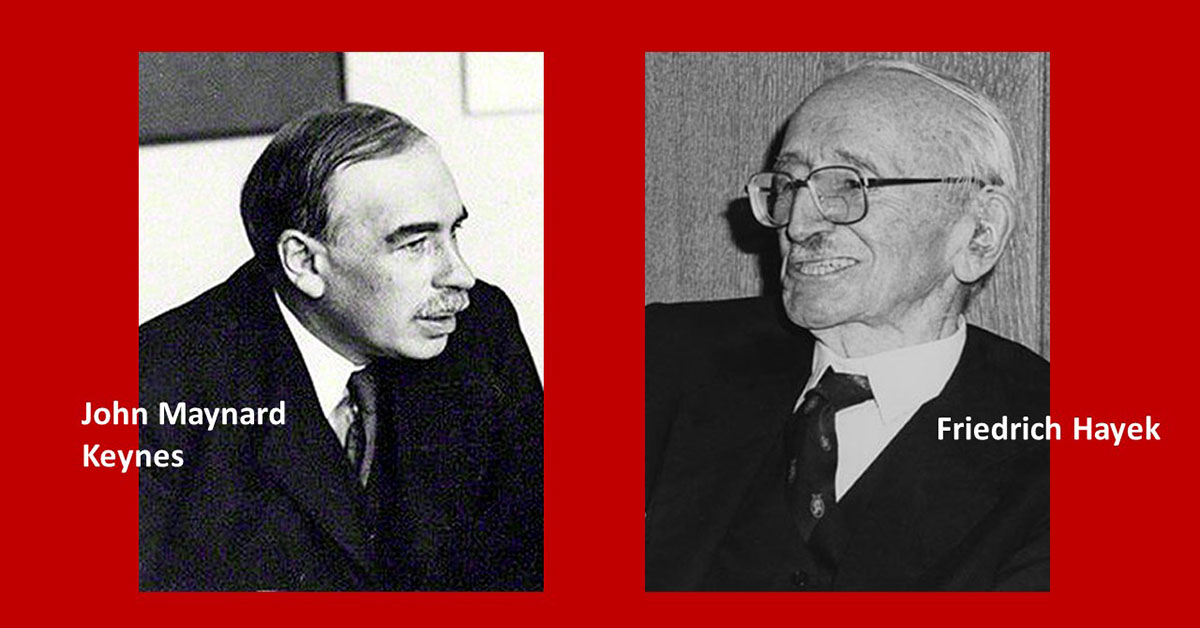
I’m always excited when a new semester begins. This semester, I’m delighted to be teaching a course that looks at recent economic and leadership challenges using past debates as a way to frame our discussions. The course is cross listed in my other area of interest, economics, and the students come to it with different, interesting perspectives that range from a focus on leadership and social justice to efficiency and economic trade-offs. This will make for some lively exchanges!
I designed the course in the wake of the subprime housing meltdown and the financial and economic crisis that followed. I wanted a way to help students think about these events without descending immediately into partisan politics. Hence, we are using the work of deceased economists—notably John Maynard Keynes and Friedrich Hayek—to contextualize our discussions.
The course explores several questions using historical debates on economic policy as our laboratory. First, what is the scope for policy makers and civil servants to lead the economy through cyclical and secular crises and the inevitable ups-and-downs that accompany economic expansion? How much agency should policy makers assume and when are unusual mechanisms called for? Second, what leadership roles do economists legitimately play in the development and implementation of economic policy?
We will consider these questions in the context of the contrast between Keynes and Hayek and the current U.S. partisan debates. While the ideas of Keynes and Hayek will loom large in the historical context, our focus for contemporary issues is on policy, not personalities.
To liven things up a bit, we’ll have visits from a former president of the Federal Reserve Bank of Richmond, Dr. Jeffrey Lacker; a good friend and economics colleague, Dr. Stefan Kolev; and a Jepson School of Leadership Studies alumnus and lobbyist, Tripp Perrin, ’95. Each will present on their areas of expertise—the policy of the Federal Reserve, German economic policy then and now, and state leadership and economic challenges, respectively. I also plan to offer a module on the role of the administrative state, which is increasingly coming under scrutiny as the means by which economic policy is made and implemented.
The course is oriented towards theoretical perspectives on policy as well as specific policy proposals (TARP, The New Deal, and so on). To bring things further to life for the students, they will research and then write a policy brief presenting a theoretical rationale for a specific policy in contemporary debates. That presentation will contain an analysis of how Keynes and Hayek would approach the policy issue at hand.
Stay tuned for updates!
